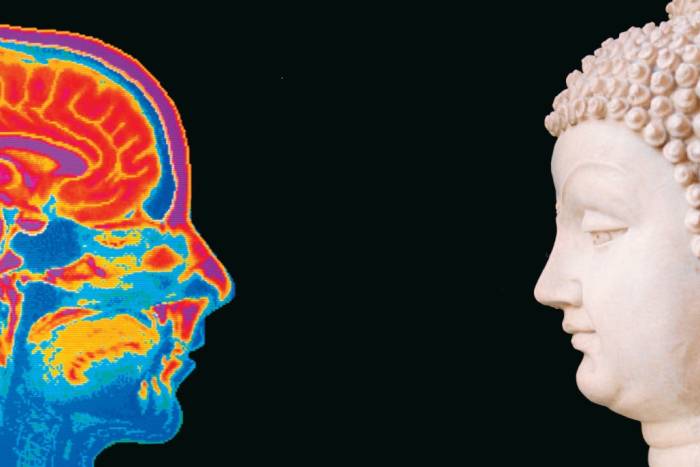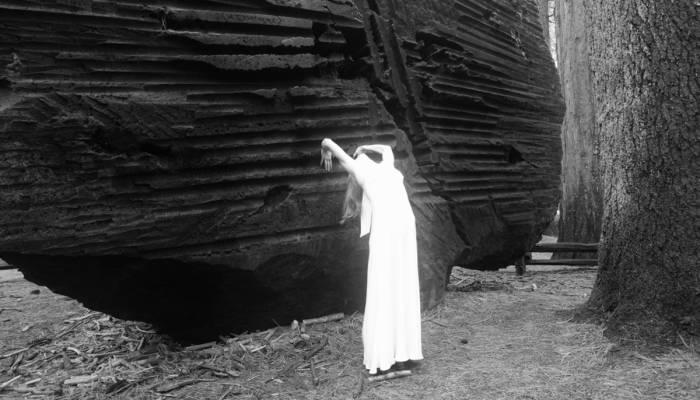Terra Incognita: The Unknown as a Perpetually Possible Paradise
On why giving yourself to the unknown is a fascinating and, in essence, perfect act.
Entering a door that separates our world from the unknown is perhaps the most genuine gesture of courage (that ‘crossing the veil’). The most audacious navigators, the born explorers, those avid makers of puzzles or those literary types that used to name what the imagination had yet to discover, all are noble figures that nobly illustrate that bravery.
In the art of medieval cartography those regions of the globe that had yet to be deciphered were designated terra incognita. That which is over there, on the other side of the ocean, and which begins just where our world ends. There where the mist dictates its inaudible laws.
“The oldest and strongest emotion of mankind is fear, and the oldest and strongest kind of fear is fear of the unknown,” H.P. Lovecraft said, suggesting a biological origin or the archetypical character of that attitude. But, it must be said, the unknown is a kingdom that we have historically been taught to fear –and even the terra incognita myth was on occasions replaced by hic sunt dracones, assuming that those territories that remained intact were nests of dragons and other monstrous creatures.
This cultural fear that the unknown provokes, and which perhaps has its origins in the biology of survival, does not only act at a societal or species level, but also at the micro level.
We all have our own terra incognita, that which inhabits us but which we prefer to avoid, and what Jung called “the shadow.” Another good example of that unknown land occurs in the field of knowledge and, in particular, the scientific one. Scientists work, in real time, to gain ground on the mysteries of the universe and thus extend the limits of the familiar – let’s not forget that they are the real treasure hunters.
It would appear impossible not to empathize, as we have all experienced it, with the fear that the unknown imposes upon us. After all, virginity is intimidating. However, it is precisely from those unknown lands that much of human reality has come: all discoveries imply embarkation and the ‘conquest’ of something until then inaccessible, and almost everything we know today was once unknown to us. In fact, utopia is founded on these lands.
From this perspective, the development of our species found its greatest ally in terra incognita, as our growth is proportionate to the space we are given. What we do not know presents a challenge, and one that in good measure provides our existence with meaning; it is a call to visualize, to name and to trap that which until that moment we only partially co-existed with. It is the opportunity, par excellence, to grow. The unknown is simply an invitation, but perhaps the most exciting of all: to know something. No more and no less.
Related Articles
When ancient rituals became religion
The emergence of religions irreversibly changed the history of humanity. It’s therefore essential to ask when and how did ancient peoples’ rituals become organized systems of thought, each with their
Larung Gar, the valley that is home to thousands of Buddhist monks
If we think about the monastic life it is very probable that we think about solitude, seclusion, silence and a few other qualities whose common denominator is the appropriate isolation for mediation
Dialogue with the Dalai Lama on science and spirituality
The Dalai Lama has been interested in science since he was a child. Over the years he’s visited many laboratories and has attended conferences that discuss consciousness from the scientific point of
A New Year's resolution for the earth
Worrisome quantities of waste are generated by human populations. Especially in cities, these have reached unprecedented and alarming levels. A largely uncontrolled practice, it affects everything on
The Dark Mountain Project: or how literature can confront ecocide
One impulse from a vernal wood May teach you more of man, Of moral evil and of good, Than all the sages can. Wordsworth, “The Tables Turned” (fragment) Words are elementary. The only reason we can
Are there no women in the history of philosophy?
Do only men philosophize? This could sound like a silly question, but if we quickly review the names of philosophers, from Aristotle to Slavoj Žižek, it would appear to be an exercise that is
Things that are about to disappear: photography as environmental conservation
Cristina Mittermeier is the founder of the International League of Conservationist Photography (iLCP), and is at the front of a modern movement to use photography with environmental purposes. Her work
Architecture And Music; An Affair That Acts On The Matter
A composition is like a house you can walk around in. — John Cage Perhaps music, more than the art of sound, is the art of time. That’s why its communion with space, and architecture, is so often so
Psycho-geography (On The Ritual Casting of a City)
Mrs. Dalloway walked down the streets of London guided by an “internal tide” that made her stop somewhere, enter a store, turn at the corner and continue her journey, as if she were adrift. La dérive
A Theme Park Inspired by Hayao Miyazaki is About to Open …
One of animation’s most spectacular exponents, Hayao Miyazaki, is the artist who transformed the direction of traditional animation forever.










